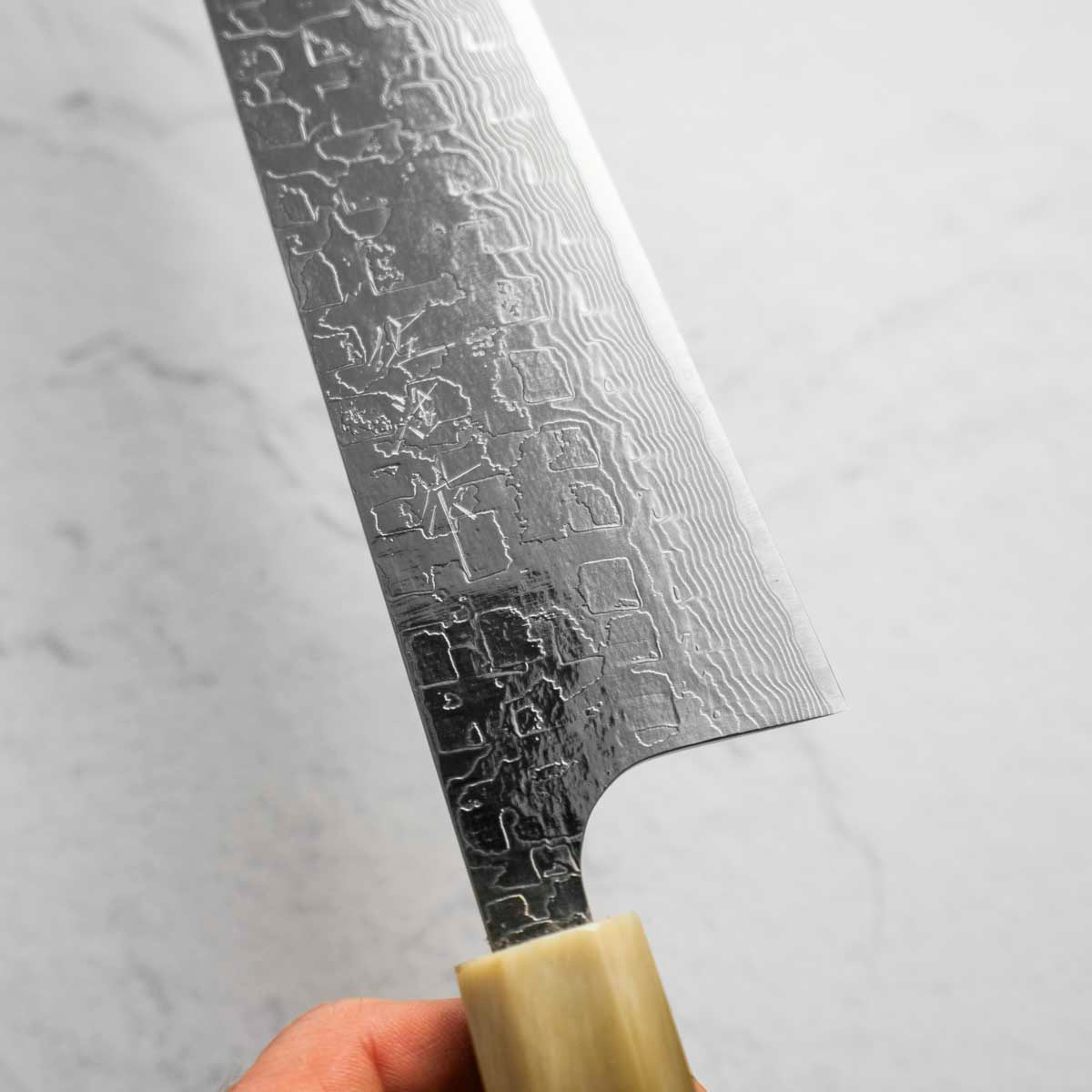
Mastering Japanese Knife Care: Preserving the Excellence of Your Blades
When you bring a Japanese knife into your kitchen, you're not just adding a tool; you're embracing a piece of culinary artistry. Renowned for their precision, beauty, and sharpness, Japanese knives require a certain level of care to maintain their exceptional qualities. Whether you own a carbon steel or stainless steel blade, understanding how to care for your Japanese knife is crucial. Let’s explore the best practices to ensure your Japanese knives remain in top condition.
Understanding Your Japanese Knife
Before diving into care techniques, it's important to recognize the type of Japanese knife you have. Carbon steel knives are known for their exceptional sharpness but are prone to rust and discoloration if not cared for properly. Stainless steel knives, while much less susceptible to rust, also demand specific maintenance to preserve their edge and lustre.
Caring for Carbon Steel Japanese Knives
-
Regular Cleaning: After each use, immediately wash your carbon steel knife with warm, soapy water. Dry it thoroughly, as any residual moisture can lead to rust. Avoid dishwashers, as the harsh chemicals and environment can damage the blade and loosen the handle.
-
Preventing Rust: Carbon steel can oxidize if not properly maintained. To prevent rust, lightly coat the blade with a food-grade mineral oil after each use. If rust does appear, gently remove it with a non-abrasive cleaner such as BarKeepers Friend and a soft sponge.
-
The Patina: Over time, carbon steel develops a patina, a darkening of the blade, which is normal and even desirable. This patina actually helps protect the steel from rust.
Maintaining Stainless Steel Japanese Knives
-
Cleaning Practices: While stainless steel is more resistant to corrosion, it’s still crucial to clean your knife after each use. Remember is stain-less, not stain-none. Hand-wash with mild detergent and dry immediately.
-
Avoiding Harsh Chemicals: Harsh chemicals can damage the stainless steel surface, leading to pitting or discoloration. Stick to mild soaps and avoid chlorine-based detergents.
Sharpening Your Japanese Knives
-
Use the Right Tools: Japanese knives should be sharpened with a whetstone. The grit of the stone you use will depend on the sharpness of your knife and the hardness of your steel. A rougher grit is used for very dull knives and higher hardness knives, while a finer grit is for regular maintenance.
-
Sharpening Technique: The angle and pressure are crucial when sharpening Japanese knives. Maintain a consistent angle of ~15 degrees and use gentle, even strokes. This requires some practice, but it’s essential for keeping the edge of your blade in optimal condition.
-
Regular Honing: Between sharpening sessions, use a honing rod to keep the edge of the knife aligned. This doesn’t sharpen the knife but helps maintain its edge. We recommend to only use a ceramic honing rod on all our knives.
Storing Your Japanese Knives
-
Use a Knife Roll or Magnetic Strip: Proper storage is key. A good knife roll or a magnetic strip keeps the blades safe and prevents them from dulling. Avoid storing knives loosely in drawers, as this can damage the edges.
-
Avoid Humidity and Direct Sunlight: Store your knives in a dry place away from direct sunlight, as excess moisture and heat can damage both the blade and handle.
Additional Tips for Japanese Knife Care
-
Handle with Care: Japanese knives are designed for specific tasks. Avoid using them for inappropriate actions like cutting through bones or frozen foods, as this can damage the blade.
-
Use Appropriate Cutting Surfaces: Always use a wooden or plastic cutting board. Hard surfaces like glass or metal can dull the knife’s edge.
-
Regular Maintenance: Regularly inspect your knives for any signs of wear or damage. Timely attention to any issues can prevent further damage and maintain the knife’s integrity.
In Conclusion
Caring for your Japanese knife is an integral part of the culinary experience. It not only ensures the longevity of your knife but also enhances your cooking. Whether you own a carbon steel or a stainless steel Japanese knife, proper care will keep it in prime condition, ready to tackle any culinary challenge. Remember, a well-maintained Japanese knife is not just a tool; it's a culinary partner that reflects your passion and respect for the art of cooking.
Share
